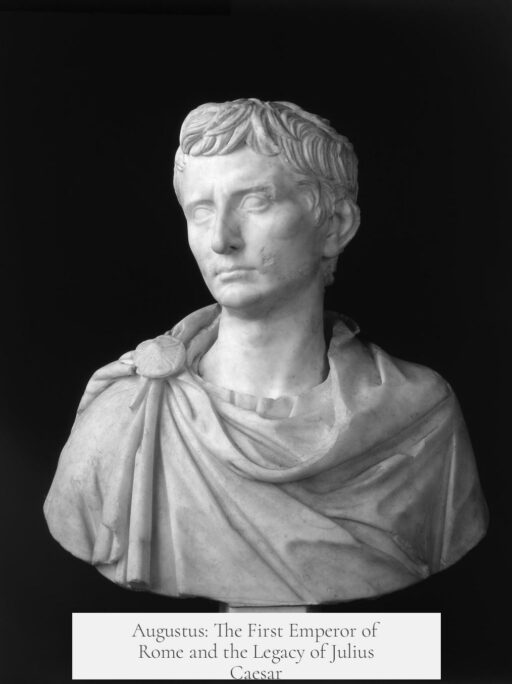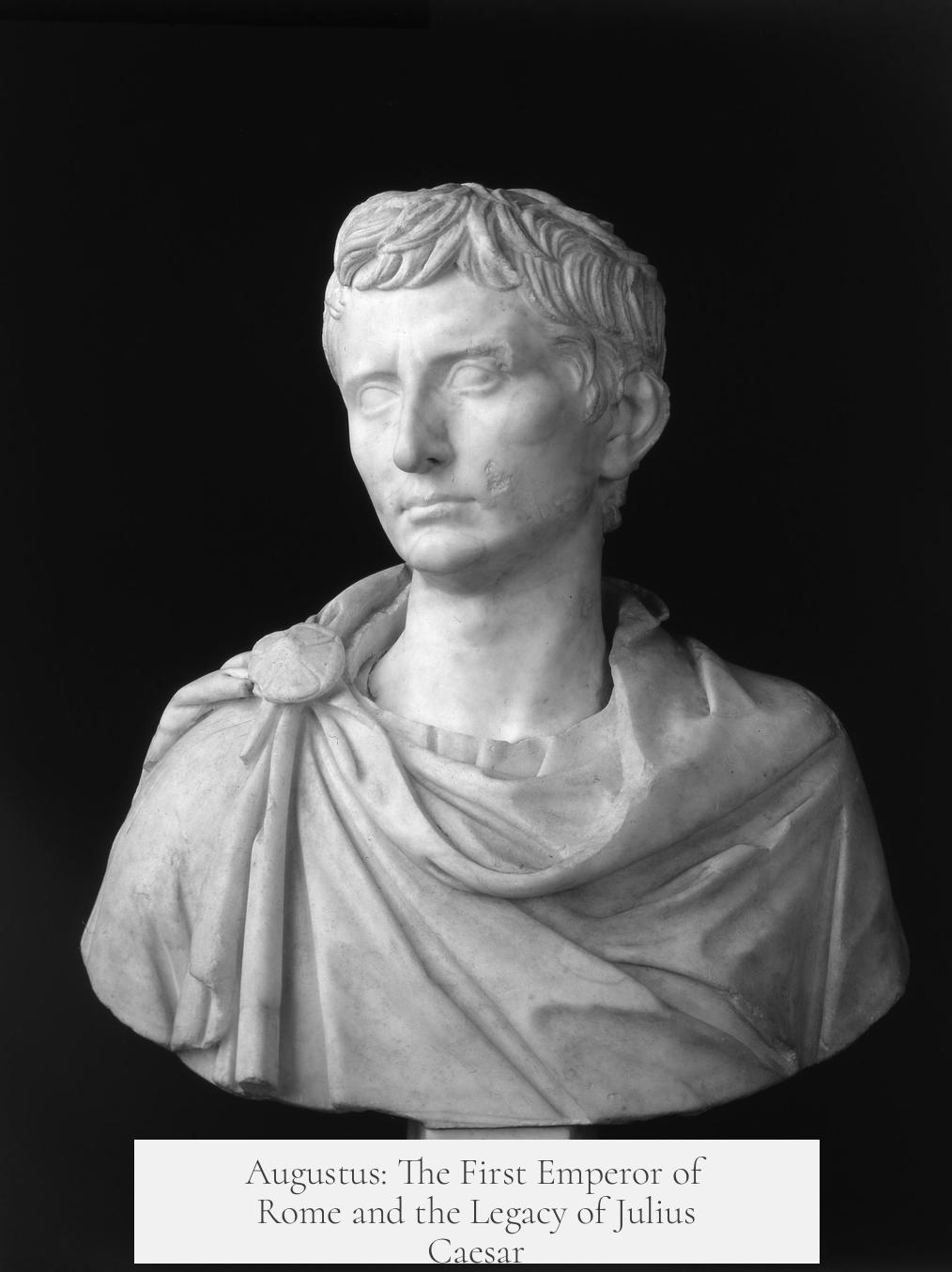Augustus is considered the first Roman emperor rather than Julius Caesar because he established the foundational structures of the Roman Empire and created a lasting imperial system. While Caesar held extraordinary power as dictator, he did not formalize the office or set a precedent for imperial succession. Augustus transformed the Republic’s fragile power systems into an autocracy anchored around himself. His reign, from 27 BC until his death in AD 14, marks the formal beginning of the Roman Empire and the shift to imperial rule.
Julius Caesar accumulated powers similar to an emperor’s. He controlled much of the Roman state, declared himself dictator, and centralized authority. However, his rule did not end the Republic’s institutions or establish a new political order. Precedents for autocratic rule existed before Caesar. For example, Lucius Cornelius Sulla had declared himself dictator decades earlier, organizing similar power grabs. Pompey also wielded significant control but never became dictator. Caesar’s assassination prevented him from cementing a lasting structure to his authority.
In contrast, Augustus, born Gaius Octavius, inherited Caesar’s legacy and power but acted differently. He carefully reconstructed Roman governance, retaining the outward form of the Republic while placing supreme authority in his hands. Augustus melded traditional offices like consul and princeps with new powers. Over several decades, he consolidated military command, religious authority, and control over Rome’s finances and provinces.
Augustus also introduced reforms that reshaped Rome:
- He reformed morals and religion, passing laws to encourage marriage and family growth and reviving traditional Roman religious practices.
- He secured peace, known as the Pax Romana, across a vast empire that extended around the Mediterranean.
- He invested in public buildings and infrastructure, improving the city of Rome, famously stating, “I found Rome a city of bricks and left it a city of marble.”
His reign established a dynastic principle. Augustus passed his powers to his heir, creating a system where emperors succeeded one another. This imperial succession was absent during Caesar’s time. Later emperors adopted Augustus as the model of rulership and even took his name, “Caesar Augustus,” which evolved into a formal imperial title.
Augustus’ significance lies in changing Rome’s political landscape permanently. He was both the last significant figure of the Late Republic and the first ruler of the Roman Empire. This dual role explains why historians view him as the first official emperor, not Caesar. While Caesar’s control was extraordinary, he did not complete the transition to empire or establish lasting imperial institutions.
| Aspect | Julius Caesar | Augustus |
|---|---|---|
| Political Role | Dictator with strong autocratic power | Princeps and first Emperor, creator of imperial system |
| Legacy | End of Republican traditions disrupted, no succession established | Empire founded, system and dynasty initiated |
| Rule Duration | Short, ended by assassination | Long, over 40 years of stable rule |
| Reforms | Political and military power consolidated | Social, moral, religious, and administrative reforms |
Augustus’ impact reshaped Roman governance and culture. His name, “Augustus,” meaning “the revered one,” symbolized a new era. Later emperors modeled their rule after him and adopted his name and titles. Caesar’s name, while influential, did not become a title of office the way “Caesar” combined with “Augustus” eventually did.
The transition from Republic to Empire is marked by Augustus’ reign. He broke from the cycle of dictator-like individuals by crafting a durable imperial framework. Historians credit him as the first emperor due to this lasting creation, not merely because of the level of power wielded. Augustus’ legacy established peace, stability, and governance patterns lasting centuries.
- Augustus founded the Roman Empire and established its first emperor office.
- Caesar held dictator-level power but did not formalize imperial structures.
- Augustus introduced reforms in law, religion, and administration.
- He created a system of imperial succession, ensuring the empire’s continuation.
- Later emperors followed Augustus’ model and adopted his titles.
Why is Augustus called the first emperor and not Julius Caesar?
Caesar held power as a dictator but never established a new system of government. Augustus created the Roman Empire’s lasting structure and set a precedent for imperial succession.
Did Caesar rule as an emperor before Augustus?
Caesar controlled Rome with near-emperor power. However, he did not transform Rome’s political system into an empire, which is why he is not deemed its first emperor.
How did Augustus change Rome’s leadership?
Augustus replaced the Republic’s old power forms with new ones centered on himself. His reforms cemented a permanent ruling system passed to heirs, creating the imperial line.
What role did Augustus play in reshaping Roman society?
He enforced laws to boost marriage and loyalty and revived religious practices. Augustus also secured peace in the empire and expanded its borders through diplomacy and force.
Why do later emperors emulate Augustus rather than Caesar?
Augustus created the imperial model every later emperor followed. They adopted his name and style, making him the real founder of the Roman emperor tradition.




